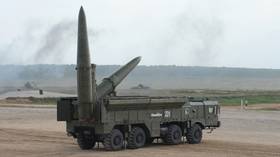80% of Ukrainian refugees in Germany jobless – Die Welt

Only 20% of Ukrainian refugees who fled to Germany after the outbreak of the conflict with Russia are currently employed, Die Welt has reported.
According to the UN, just over 1 million Ukrainian refugees have arrived in Germany since February 2022. More than a year and a half later, four-fifths of them remain jobless, Die Welt said.
The integration of Ukrainians into the German labor market has been “sluggish” compared to neighboring Poland and the Czech Republic, where around two-thirds of refugees have jobs, the paper noted in an article published on Thursday.
One of the main reasons for the disparity is the generous financial aid provided by the German authorities, according to Die Welt. Ukrainians can receive indefinite monthly payments of €502 ($537) and can also have living costs covered, the paper explained, claiming this gives rise to a lack of motivation to seek employment.
In Poland, the monthly benefits for refugees are just €66, with those living in collective accommodation being asked to cover half of the costs after four months. The Czech authorities offer financial aid of €200, which drops to €130 after five months.
The paper clarified that Ukrainians in Poland and the Czech Republic mainly do low-paid jobs, while Germany relies on “a different strategy” of sending the refugees – three-quarters of whom have university degrees – on six-month language and integration courses so that they can find employment matching their qualifications.
However, Die Welt claimed that Berlin’s strategy “doesn’t seem to be working.” It cited data from the Friedrich Ebert Foundation think tank showing that the number of working refugees has grown by just 1% since October 2022.
“Cumbersome German bureaucracy” should also be blamed for delaying the arrival of Ukrainians on the job market, Die Welt wrote. While other EU countries have swiftly removed legal obstacles for those fleeing the conflict, Berlin insists on time-consuming security checks and other procedures.
It pointed to a survey by Ukrainian pollster the Razumkov Center, which stated that almost half of Ukrainians said they had encountered bureaucratic problems during registration in Germany.
UN data suggests that 5.8 million Ukrainian refugees have been recorded in Europe since the beginning of hostilities between Moscow and Kiev. Citing security sources, TASS reported earlier this year that Russia had taken in more than 5.2 million Ukrainians fleeing the fighting, including some 730,000 children.













